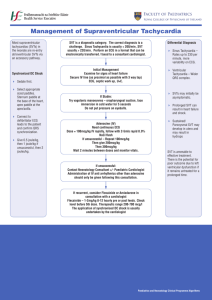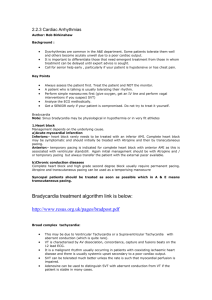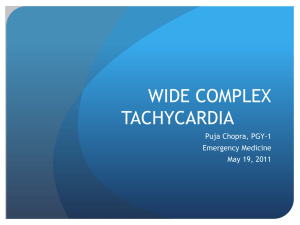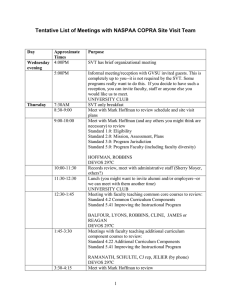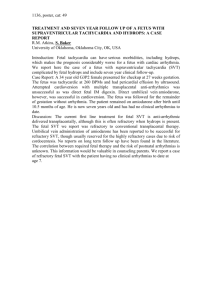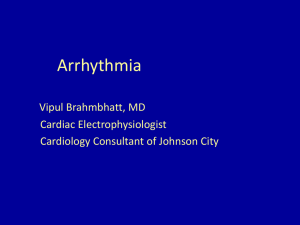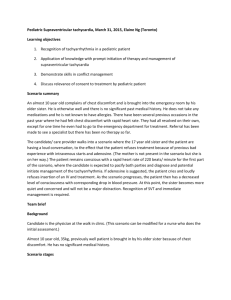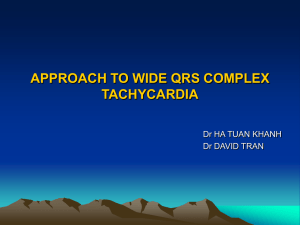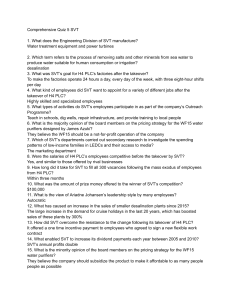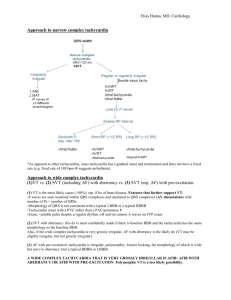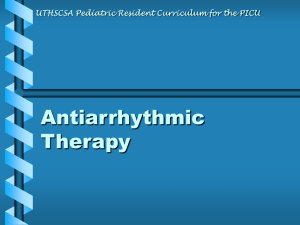What Is Supraventricular Tachycardia
advertisement
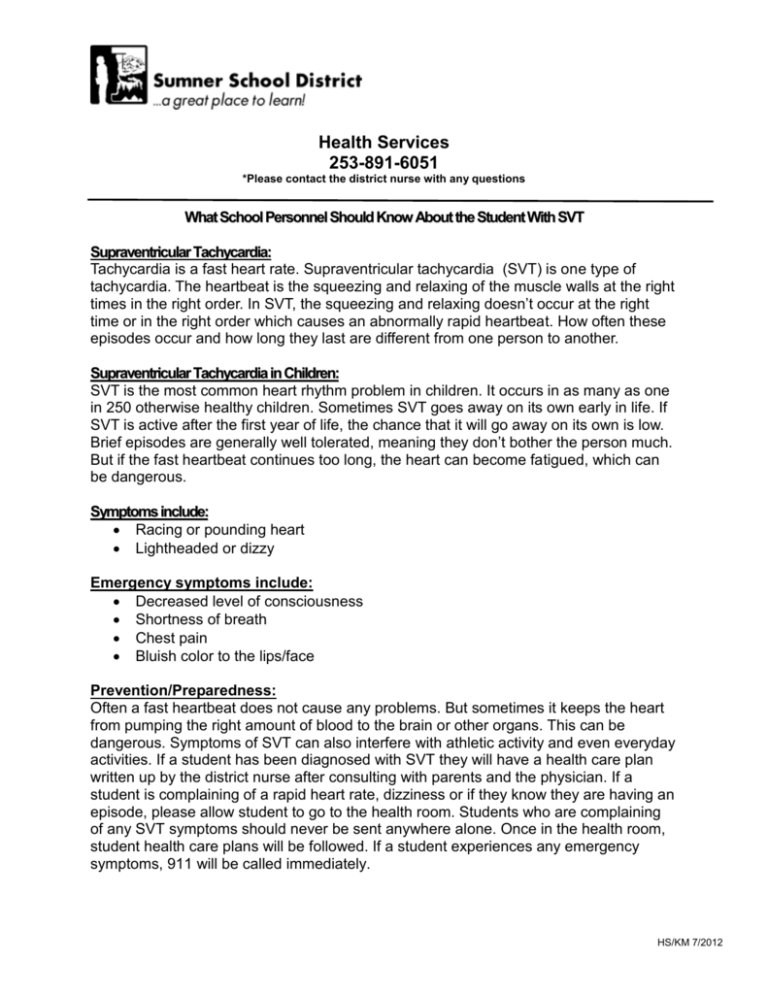
Health Services 253-891-6051 *Please contact the district nurse with any questions What School Personnel Should Know About the Student With SVT Supraventricular Tachycardia: Tachycardia is a fast heart rate. Supraventricular tachycardia (SVT) is one type of tachycardia. The heartbeat is the squeezing and relaxing of the muscle walls at the right times in the right order. In SVT, the squeezing and relaxing doesn’t occur at the right time or in the right order which causes an abnormally rapid heartbeat. How often these episodes occur and how long they last are different from one person to another. Supraventricular Tachycardia in Children: SVT is the most common heart rhythm problem in children. It occurs in as many as one in 250 otherwise healthy children. Sometimes SVT goes away on its own early in life. If SVT is active after the first year of life, the chance that it will go away on its own is low. Brief episodes are generally well tolerated, meaning they don’t bother the person much. But if the fast heartbeat continues too long, the heart can become fatigued, which can be dangerous. Symptoms include: Racing or pounding heart Lightheaded or dizzy Emergency symptoms include: Decreased level of consciousness Shortness of breath Chest pain Bluish color to the lips/face Prevention/Preparedness: Often a fast heartbeat does not cause any problems. But sometimes it keeps the heart from pumping the right amount of blood to the brain or other organs. This can be dangerous. Symptoms of SVT can also interfere with athletic activity and even everyday activities. If a student has been diagnosed with SVT they will have a health care plan written up by the district nurse after consulting with parents and the physician. If a student is complaining of a rapid heart rate, dizziness or if they know they are having an episode, please allow student to go to the health room. Students who are complaining of any SVT symptoms should never be sent anywhere alone. Once in the health room, student health care plans will be followed. If a student experiences any emergency symptoms, 911 will be called immediately. HS/KM 7/2012
